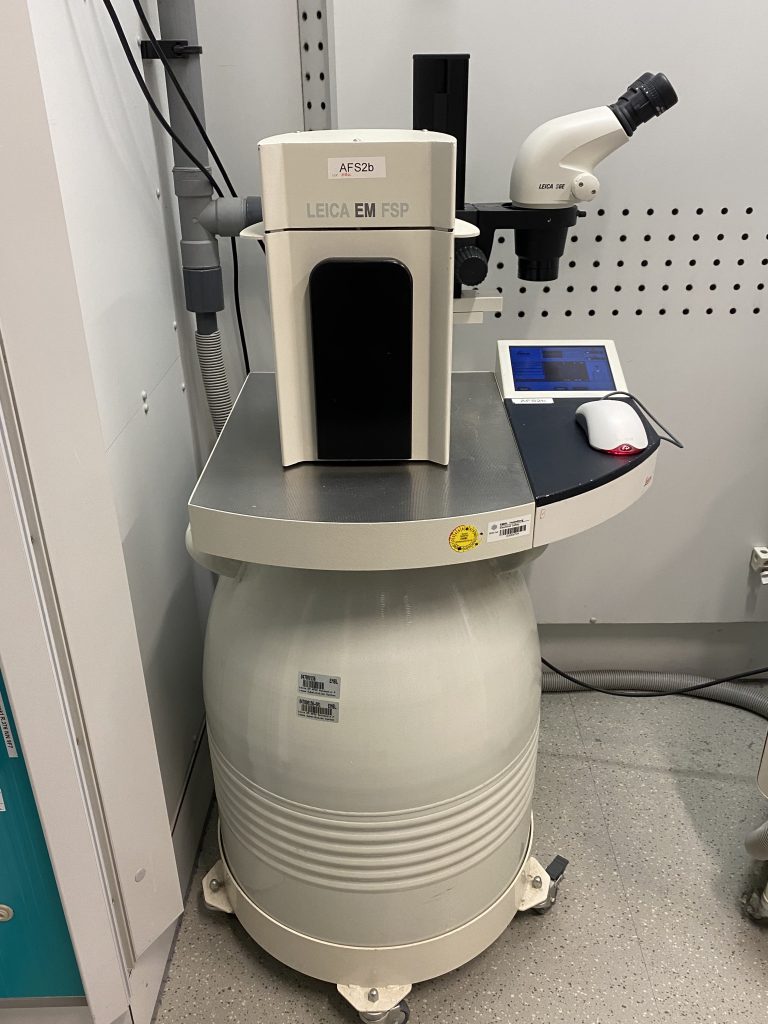After freezing, the samples are placed into an Advanced Freeze Substitution (AFS) machine (Leica Microsystems, Wetzlar, Germany) that controls the samples temperature and enables their dehydration, fixation and staining with heavy metals and embedding into a plastic resin. Freeze Substitution can be automated by using the Freeze Substitution Processor (FSP) (Leica Microsystems, Wetzlar, Germany) for adding and removing the solutions or these steps can be done manually. During this process, water molecules within the samples are exchanged with an organic solvent (usually acetone or ethanol) at low temperatures. The specimens are stained with heavy metals and dehydrated, while the temperature is slowly increased. Finally the specimens can be infiltrated with a resin and are either polymerised with heat in an oven (epoxy resins) or inside the machine with UV light (Lowicryl resins). At the end of the process the hard plastic blocks generated are ready to be sectioned using the ultramicrotome. The EMCF is developing FS protocols adapted to a number of samples or applications such as in-resin-fluorescence CLEM in 2D or in 3D (see below).
